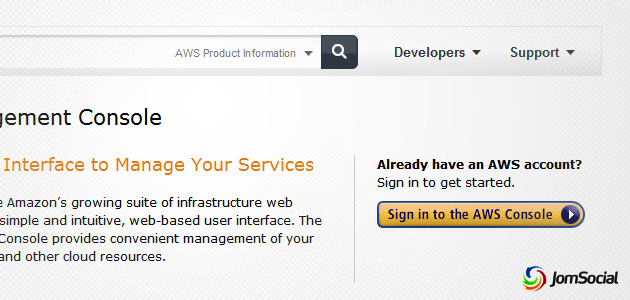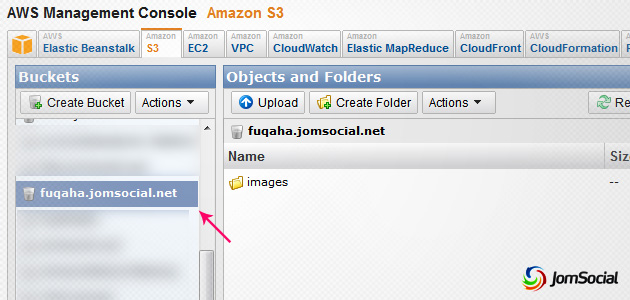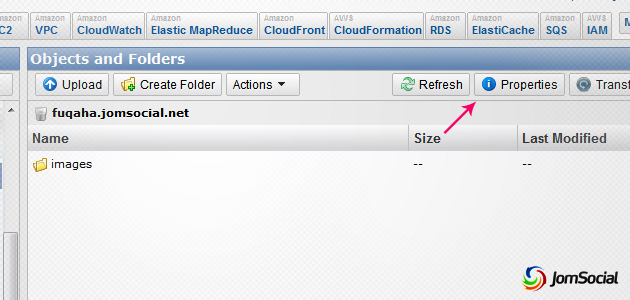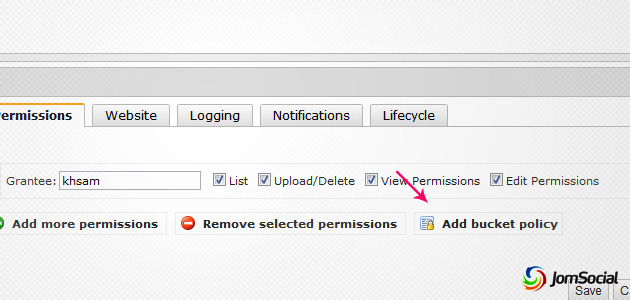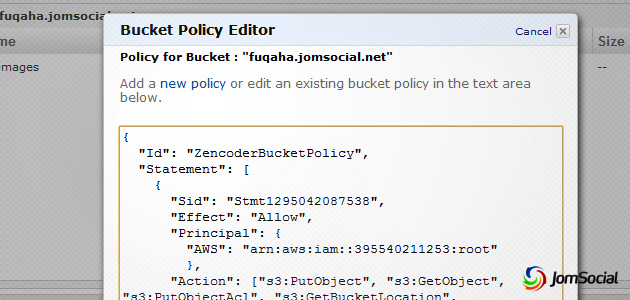(→Setting It Up) |
|||
| Line 9: | Line 9: | ||
===Setting It Up=== | ===Setting It Up=== | ||
| − | To get started, please login to the [http://aws.amazon.com/console/ Amazon AWS Console]. | + | To get started, please login to the [http://aws.amazon.com/console/ Amazon AWS Console].<br/> |
| − | [[File:Amazon5.jpg]] | + | [[File:Amazon5.jpg]]<br/><br/> |
| − | Once you have logged in, please select the correct bucket that you will use for ZenCoder video files. | + | Once you have logged in, please select the '''correct bucket''' that you will use for ZenCoder video files.<br/> |
| − | [[File:Amazon1.jpg]] | + | [[File:Amazon1.jpg]]<br/><br/> |
| − | Then click on Properties. | + | Then click on Properties.<br/> |
| − | [[File:Amazon2.jpg]] | + | [[File:Amazon2.jpg]]<br/><br/> |
A bar will appear at the bottom, and then proceed to 'Add bucket policy'. | A bar will appear at the bottom, and then proceed to 'Add bucket policy'. | ||
Revision as of 11:39, 8 March 2013
Introduction
ZenCoder makes it easy for a community that has no FFMPEG access on its server to upload and convert videos using a Third-Party video conversion service. Recently, there are some updates on Amazon's AWS service that would require you to setup a special "bucket policy" to allow an external service to add and retrieve files.
After inputting ZenCoder credentials in JomSocial Configuration, you will need to configure Amazon S3 to allow file uploading and downloading from the S3 Bucket.
Setting It Up
To get started, please login to the Amazon AWS Console.
Once you have logged in, please select the correct bucket that you will use for ZenCoder video files.
Then click on Properties.
A bar will appear at the bottom, and then proceed to 'Add bucket policy'.
In the popup, Copy and Paste this Policy:
{ "Id": "ZencoderBucketPolicy", "Statement": [ { "Sid": "Stmt1295042087538", "Effect": "Allow", "Principal": { "AWS": "arn:aws:iam::395540211253:root" }, "Action": ["s3:PutObject", "s3:GetObject", "s3:PutObjectAcl", "s3:GetBucketLocation", "s3:ListBucketMultipartUploads", "s3:ListMultipartUploadParts"], "Resource": "arn:aws:s3:::MY-BUCKET/*" } ] }
You are almost ready. But before that, you will need to change the 'MY-BUCKET' text in the above code
Replace 'MY-BUCKET' with your own bucket name. Do not delete /* that appear after the bucket name. This is important to ensure all files within the bucket will have the preconfigured access privilege.
Save and you are now ready to go!

